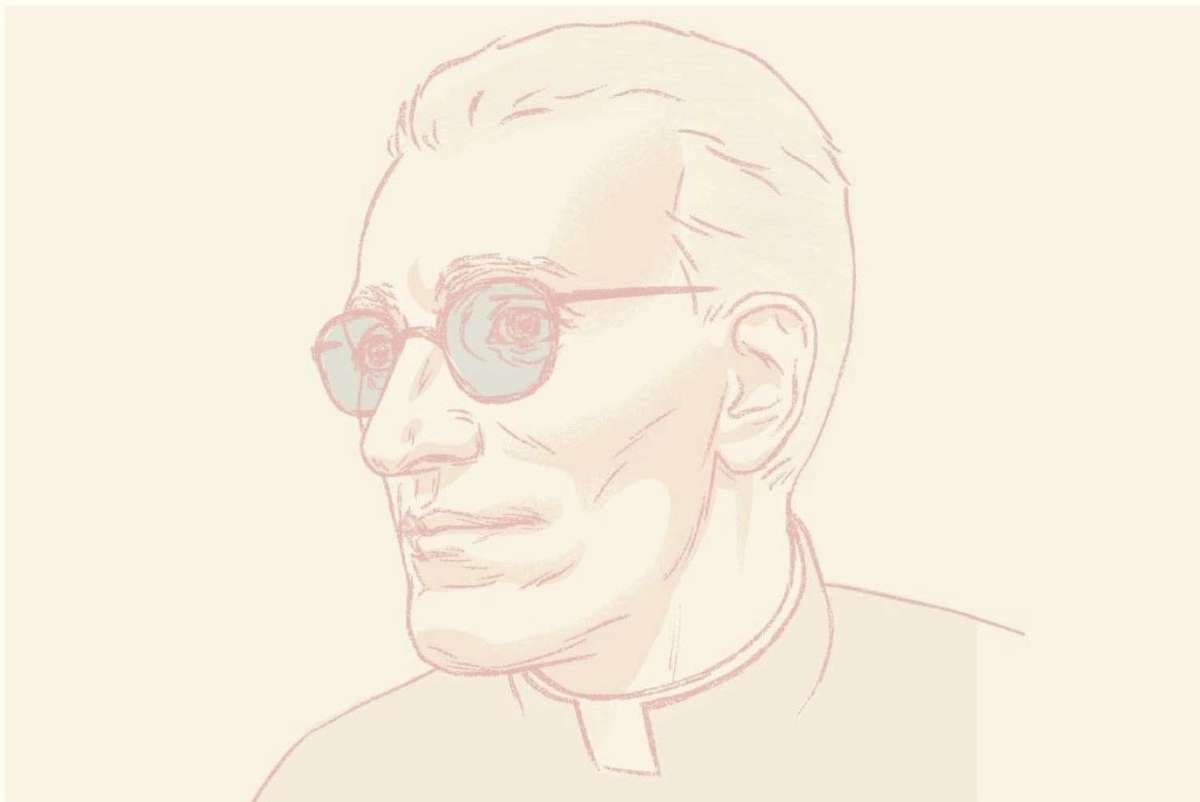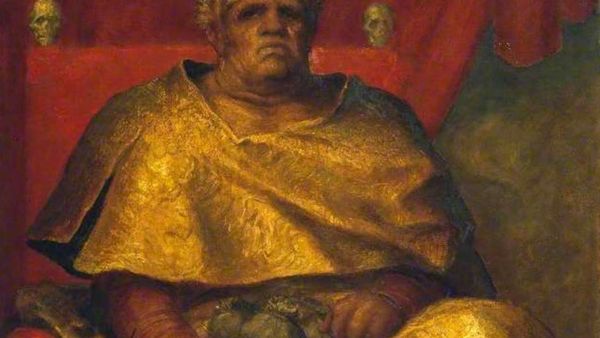Saints are an antidote to whatever the age neglects, as G.K. Chesterton once pointed out. Such figures restore the world to sanity by exaggerating whatever it has overlooked. In today’s world, some might argue that a large dose of Dorothy Day is long overdue for American society. But just as Chesterton juxtaposed brilliantly St. Francis and St. Thomas, the more to underline their complementarity, so we might propose a figure (also with a cause for canonization underway) to set beside Dorothy. Besides her radical charity, we need a model of radical solidarity—an apostle of cooperation, to use a key term of the new economy movement.
Fr. Josemaría Arizmendiaretta (often shortened to Arizmendi) was a Basque, as were his illustrious predecessors St. Ignatius Loyola and St. Francis Xavier. In February 1941, the young priest arrived in his new post of Mondragon where one of his predecessor priests had been shot by Franco’s forces. Battered by the war, the little Mondragon suffered from severe unemployment. But the new padre had no training in business or economic matters.
He was, however, a close student of Catholic Social Thought (especially Rerum Novarum and Quadragesimo Anno), as well the writings of figures like Jacques Maritain and Emmanuel Mounier (whose work on personalism profoundly impacted Peter Maurin and by extension the Catholic Worker movement). Don Josemaría, as he came to be called, became the chaplain of the local branch of the Catholic Action movement. He believed that the social solidarity which had been typical of Basque communities historically could be rejuvenated. In his plan for social reconstruction, the first step was technical education and then the creation of a cooperative business. By 1943, his efforts led to a new polytechnic school, a democratically-administered institution open to all young people in the region.
Importantly, the training at the school was not only technical: it was also informed by the personalism of its founder and his vision of the connection between Catholic social thought and the cooperative model, with all its benefits for both workers and consumers, indeed, for the larger society itself. In 1955, five graduates of the school were ready to create their first industrial cooperative, the beginning of what would become the Mondragon Corporation, today an international federation of worker cooperatives, the fourth largest enterprise operating in Spain, and an employer of almost 70,000 worldwide with annual sales of $16 billion. It is an accomplishment both in terms of the practical implementation of Catholic Social Teaching, as well as one which makes Arizmendi arguably the most successful social entrepreneur (a term he would not have known) of the twentieth century.
Amazingly, Mondragon continues to operate today on ten basic cooperative principles: Open Admission, Democratic Organization, the Sovereignty of Labor, Instrumental and Subordinate Nature of Capital, Participatory Management, Payment Solidarity, Inter-cooperation, Social Transformation, Universality and Education. The average wage differential between employees in the lowest and highest paid positions continues to be 1:5. Until the 2008 recession, no employee had ever been laid off at Mondragon. As a way of better understanding this Catholic vision and its relevance for our current situation, we might turn to the collection of Don Josemaría’s remarkable Reflections (a new English translation will be forthcoming from Solidarity Hall Press this May). These selections were edited by Arizmendi’s Basque friend Joxe Azurmendi, author of an excellent intellectual biography of the late priest, El hombre cooperativo.
We are looking here at a key document of CST, a collection of thoughts on both the human person and on work viewed through the cooperative model. This little book is a spiritual bridge to rehumanizing the social order and overcoming the antisocial nature of our neoliberal regime. Here are some sample entries which give the flavor of Arizmendi’s social thought:
- All economic, political and social problems are, in the final analysis, human problems.
- We do not aspire to economic development as an end but as a means.
- The cooperativist ideal is to grow more as human persons.
- It is unquestionably preferable to be a poor man than a satiated pig, it is better to be a discontented Socrates, Peter or Francis than to be a contented mad person.
- Before dreaming about making managers, it is necessary to think about making mature persons. Before teaching them public relations and manners, they need to get used to forgetting about themselves.
- Being a Christian is not only to possess the truth, but it is above all to practice the truth, which is the same thing as doing what is right.
A reflection to be applied to today’s “gig economy”:
- Economic development represents human progress and constitutes a true moral duty. In the eyes of a believer, sub-employment, in all of its forms, is a scandal.
A brilliant reformulation of the “rendering unto Caesar” teaching:
- Cooperativism gives work what is work’s and gives capital what is capital’s.
A much larger vision of the nature of work than we typically find:
- The problem now is not to place ourselves in the conditions of avoiding work, but instead of making work a service and to a large extent a source of honest satisfaction. Work can and should be humanized.
Some corrections to Marxist notions:
- Our strength is not translated as struggle but as Cooperation.
- Today revolution is called participation.
- The economic revolution will or will not be moral. The moral revolution will or will not be economical.
Striking also, given Arizmendi’s time and place (Francoist Spain of the 1940s and 1950s), are thoughts such as these:
- The position women have is, in any society, the exact measurement of its level of development.
- It is not enough to cry about adverse luck: it is women’s duty to fight to conquer the position which belongs to them, and this fight must be endured in good and bad times.
Finally, this call to a new social vision, a third way:
- If the sign of vitality is definitely not to endure but to be reborn, as was well said by a great cooperativist, if cooperativism is not only the diametrical opposite of paternalism but also of conformism and conservatism . . . then it is imperative that we remain on the cutting edge of social innovation. This is especially true when these innovations are demanded by a conscience of dignity and freedom, justice and solidarity. Those who share these feelings today do not lack strength.
- Cooperativist philosophy rejects both the collectivist and the liberal conceptions of human nature. It recognizes instead the unique value of the human person, but insists that this person cannot be totally himself or herself until entering into creative as well as spiritually and materially productive relationships with the world he or she is a part of.
Devotees of Mondragon and its model—and there are many, scattered worldwide—tend to think first of its achievements of economic equity and workplace democracy. But since the founding of the first Mondragon cooperative business in 1954, powerful cultural and social factors have been at work, spreading outward across this part of the Basque region.
+
Only recently I came across the marvelous German-language (with English subtitles) documentary, Mondragón: A Basque Cooperative, made in 2012 when the aftershocks of the 2008 financial collapse were still reverberating through Europe. It is a revelation. The German film crew had heard that this network of cooperative businesses were withstanding the economic shock: no layoffs, 10% lower unemployment in the region as compared with the rest of Spain, etc. And they had likely noted that the U.N. had declared 2012 as the International Year of Cooperatives.
The crew arrived in Mondragón on the day a group of French bankers from Credit Agricole were also touring various facilities in hopes of learning more about the “Mondragón miracle”: at this date, 85,000 employees globally, 120 separate cooperative enterprises, 87 of which are industrial, plus a bank / credit union, a consumer coop, several agricultural coops, eight educational coops (including Mondragón University), five social service coops, and no less than fourteen research and development centers. Not a coop, nor even a network of coops any longer, but a cooperative regional economy—and an ethos.
On this island in the midst of the rapacious global economy, let us recall, there are no stockholders, no investors: just owners who have all agreed that 90% of profit must be reinvested in the company for wages, savings, and research. An amusing scene early in the film features a little party of buttoned-up French bankers, led by a Mondragón worker-owner in shirtsleeves, strolling across a factory floor and snapping pictures of unremarkable equipment, as though the cooperative “secret” might somehow be contained in the machinery.
Another striking scene is the monthly meeting for the Fagor unit which manufactures commercial and kitchen appliances. Seated at a table in front of about 50 worker-owners, the team leaders explain that the annual sales figures are bad—down about 15%, in fact. As is their practice, the group understands that their options are few: cut their own wages, abolish any extra dividends, and move workers from the struggling coop to another coop (based on the tenet of inter-cooperative solidarity). After a subdued but pointed presentation of the situation, one team leader ends the meeting by asking, “Any questions?” There are no questions. “That’s how a family works,” one fellow comments to the camera as everyone files out the door.
In this town of 24,000, even a local policeman echoes the solidarity. “People here don’t consider the police a threatening force,” he says, “relationships are different here. We all know each other.” The mayor adds, “The Franco years forced us Basques into a kind of economic greenhouse within which we could grow these small coops into something stronger, so that when the country opened up again, we were able to compete successfully. We simply had to take our destinies into our own hands.”
At the Meal Club, a bar-restaurant collectively owned and with members who take turns playing waiter, maître d’, etc., an evening celebration ends with some Basque nationalist songs of struggle and independence. Happily, the bad times of the terroristic ETA violence (roughly between 1970 and 2000) ended in 2010 with the group’s self-dissolution. But the sense of Basque identity is surely part of the chemical mix in this story. Where else have we seen, as the film asks, a group of blue-collar workers creating a successful socio-economic empire, born out of the ruins of war and rising amidst a hostile post-war environment of expanding global capitalism.
While the cooperative model cannot be viewed as the only “Catholic” form of enterprise, it offers a distinctive Catholic combination of elements. In a 2015 address to the Confederation of Italian Cooperatives, Pope Francis recognized the cooperative movement worldwide (in which the top 300 organizations now represent $2.2 trillion in revenue) for its contribution in building an “economy of honesty” and “a healing economy.” Thinking of his own post-war Basque country, Don Josemaría put it this way:
The cooperatives are neither born to act as social guerillas nor to deteriorate as withdrawn bourgeoisie. Rather cooperatives are born to maintain human and social values which are live and operative, in the bosom of an old and enduring people, who have a renovating capacity and deserve better luck.


